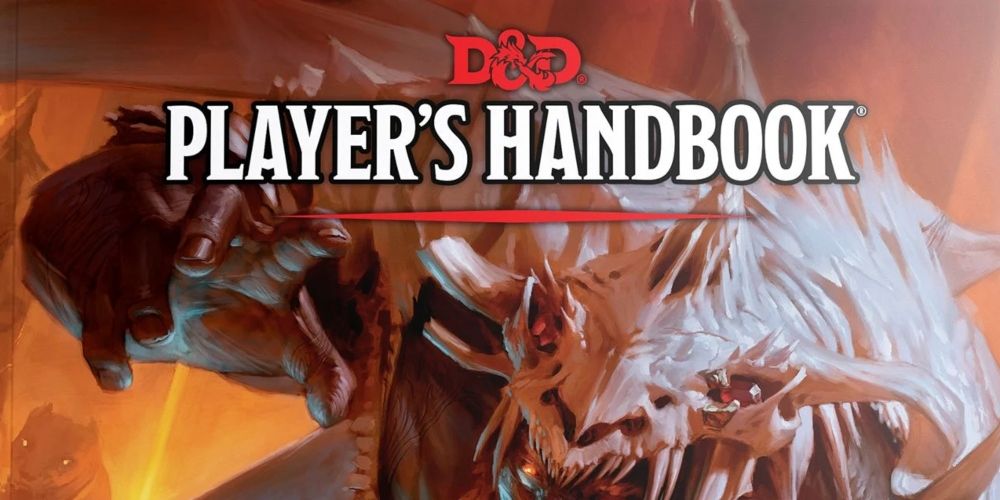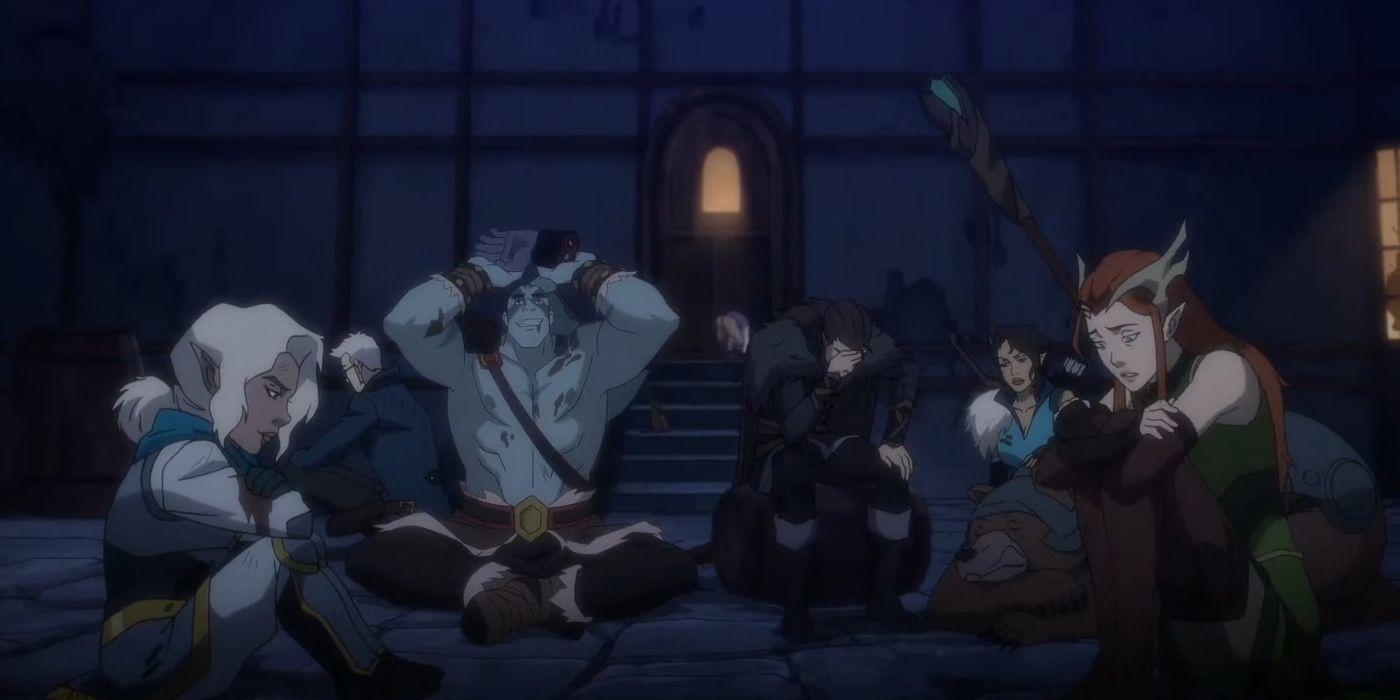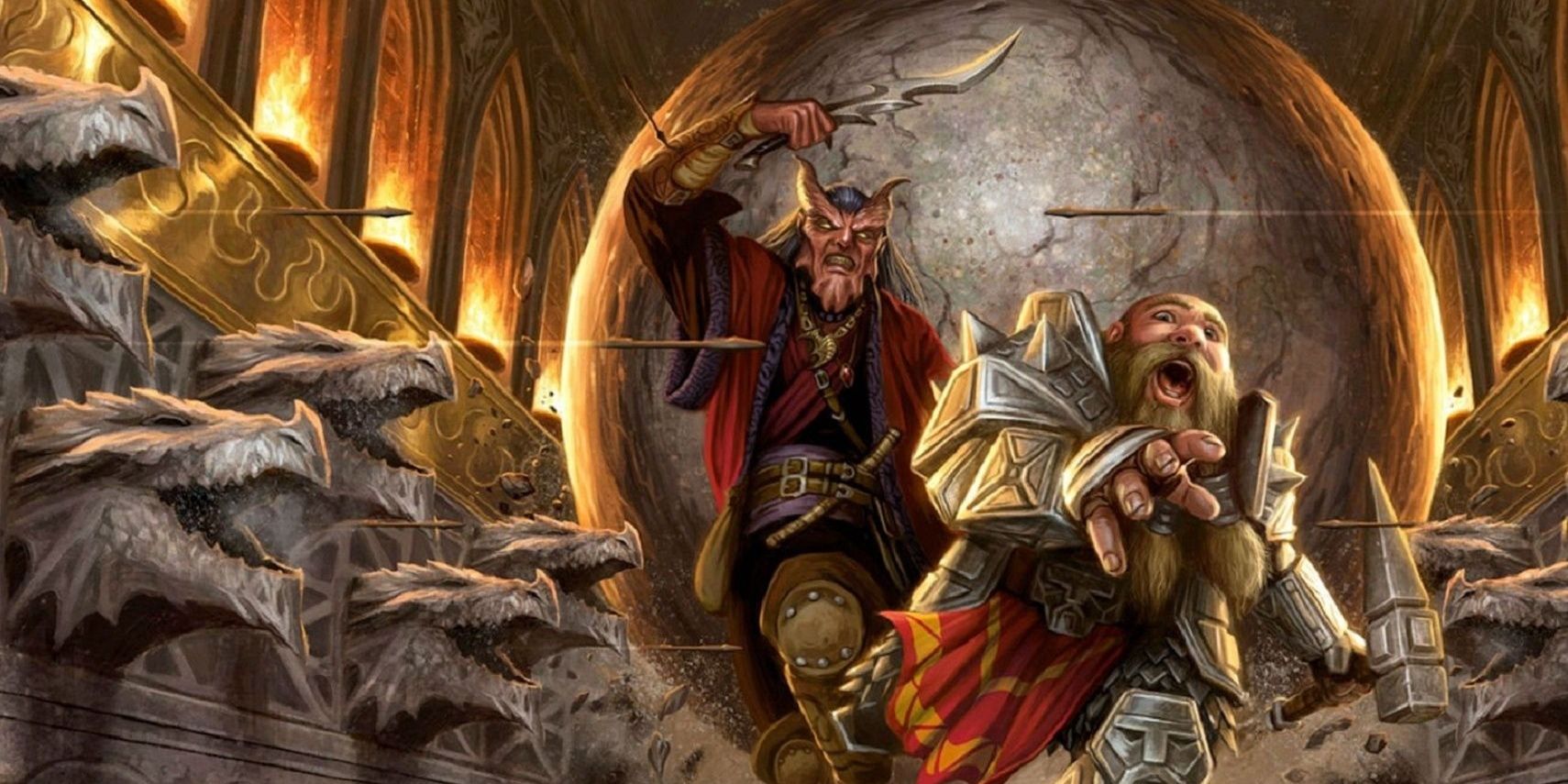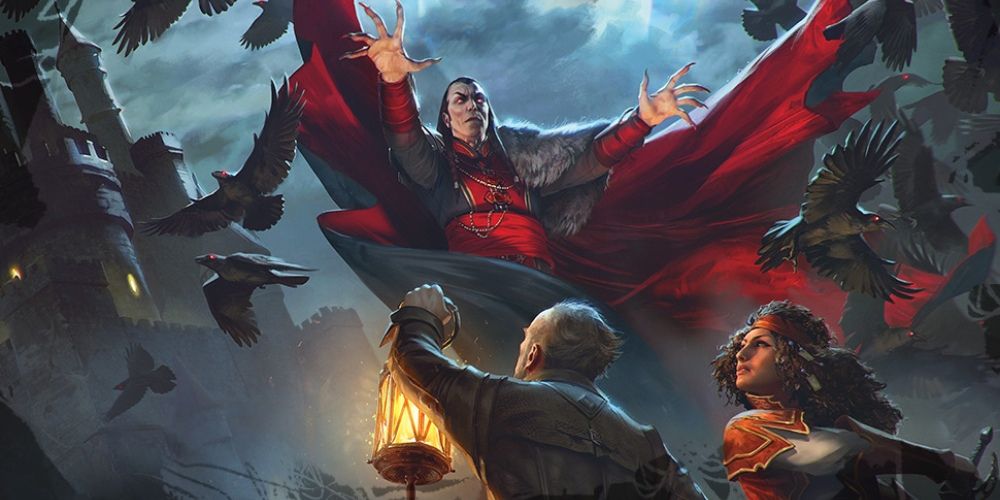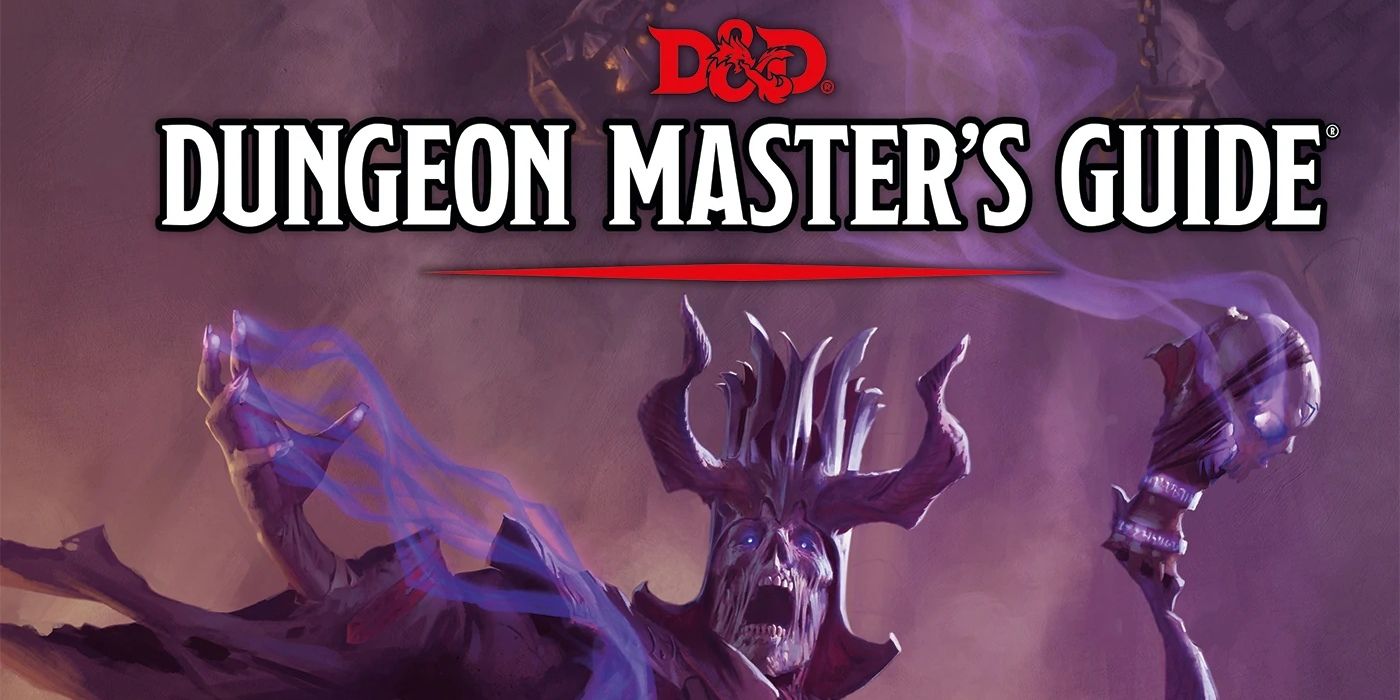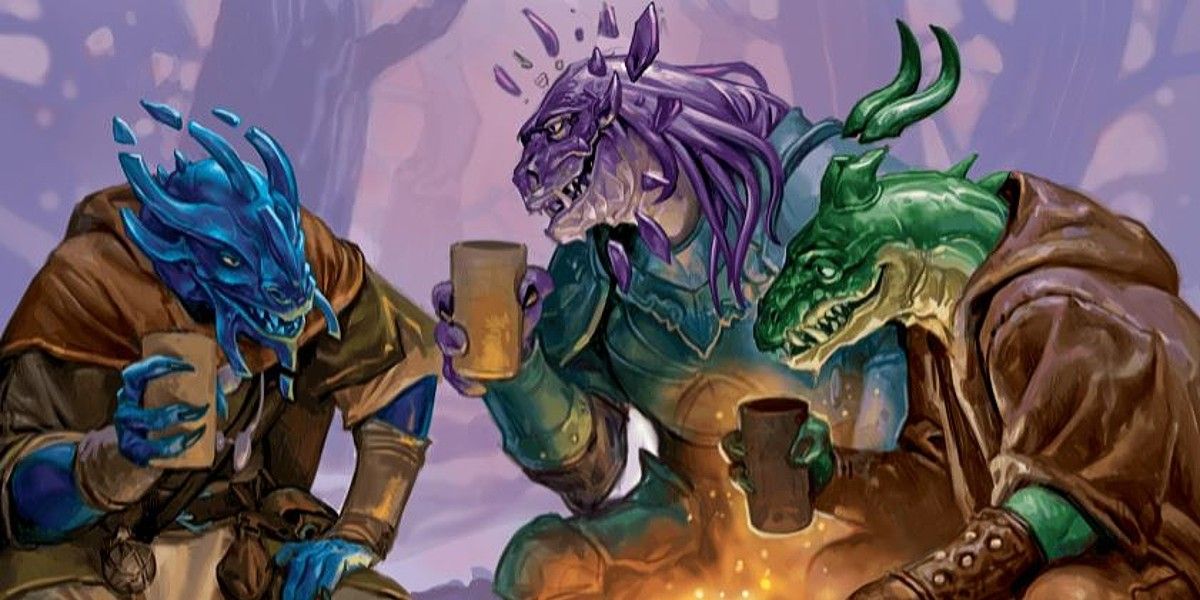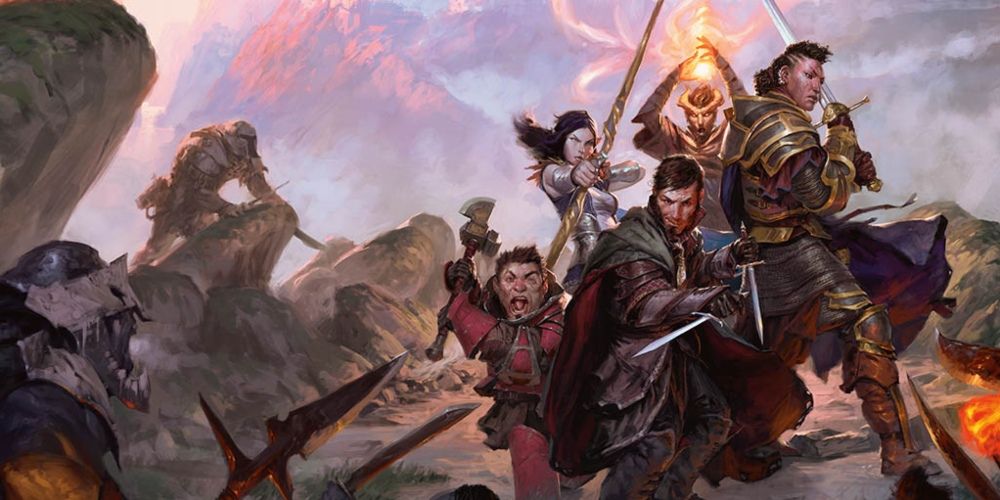Dungeons & Dragons and other roleplaying games are unique pastimes. They rely on everybody at the table to work together in good faith to ensure everybody has a good time. Many elements go into making, running, and playing a successful D&D campaign.
It's easy for players, including the Dungeon Master, to slip up. In most cases, a lapse in judgment or the rules is forgivable and won't be detrimental to the whole campaign. However, there are some mistakes that are likely to ruin a campaign. Some behaviors are best avoided for the good of the table and the other players around it.
10 Making Other Players Uncomfortable
D&D campaigns can touch on a lot of unusual topics. Some campaigns are particularly dark and focus on the negative effects of war, crime, and other similar subjects. Even away from atrocities, some groups like to include romantic or sexual content in their games. There is nothing wrong with either of these, but they rely on people being comfortable.
It is imperative to respect boundaries, whatever content is covered in a campaign. Every player should be comfortable with the subject matter being discussed. Going too deep into dark territory, playing on people's phobias, or even making unwanted off-color jokes about characters can put some people off. A game is likely to end unpleasantly if this happens.
9 Trying To Make One Character The Main Character
A Dungeons & Dragons party is unusual in that all of its members are the story's main characters. D&D doesn't have one single protagonist like many other stories. The entire group is of equal importance to the story and should be treated as such.
Some players can try and hog the spotlight and make every part of the story about their characters. Some DMs can do the same with a single player's character, favoring them with attention, rewards, and importance. Most players aren't going to want to play second fiddle to somebody else's story. Every character should get their chance to shine.
8 Not Knowing The Rules
D&D is, for many groups, an exercise in improvisational storytelling as much as it is anything else. However, it's also a game with well-defined rules all the players are expected to abide. Not bothering to learn the rules can be detrimental to the other players around the table.
This is true for both players and Dungeon Masters. If a player doesn't know the core rules they need to play, it's going to slow down the game as they look them up every time or have somebody else explain them. Everybody struggles with the rules sometimes, but a base knowledge of the important ones is essential for playing.
7 Railroad The Players & Deny Them Story Input
The Dungeon Master takes on a storytelling role in D&D. They create the game's world or interpret a world somebody else has created. They control everybody who isn't a player character, plan the adventures and storylines, and decide the consequences of the players' actions. However, they are not the sole storyteller.
In D&D, everybody at the table has a role in storytelling. Players get to guide what happens with their actions every bit as much as the DM does. There's nothing wrong with a DM planning in advance and knowing what they want to happen. However, forcing the players to adhere to a set story and not giving them any freedom to affect events is a classic way to lose players.
6 Engaging In Or Rewarding Random, Antisocial Behavior
D&D offers a lot more freedom than many other games. It isn't bound by pre-scripted events or a game engine. Players are free, within reason, to do whatever they want. Some use this freedom in unconstructive ways. Many players have horror stories of characters who only want to steal everything they can get their hands on or murder people for no reason.
Playing like this is widely regarded as detrimental to the group. It's very hard to tell a story when one character tries to gut everybody they talk to while laughing. On the DM's part, rewarding this behavior can just encourage players to do it more while frustrating other members of the group.
5 Run Adventures To Kill The Player Characters
A key part of a DM's role is to put obstacles in the players' paths. Most stories revolve around conflict, particularly in a system as combat-heavy as D&D. However, the point of D&D combat isn't to kill several player characters in every combat. It's to create a challenge that players enjoy overcoming.
The Dungeon Master can always win an arms race. They have far more tools at their disposal than player characters. However, most players don't enjoy every combat being oppressively hard or rolling up a new character every session. Some rare groups do enjoy as hard a challenge as possible. For most, however, a killer DM will also kill their interest in the game.
4 Forcing Storylines That Players Aren't Interested In
The DM has a lot of control over the storyline of a campaign. They set up events in the world and guide the direction of the plot. However, it's still fundamentally up to the players to engage with the storyline. If players aren't interested in a plot thread, trying to force it is just likely to make things worse.
It may be that the DM is really interested in telling a storyline, and the party hasn't quite realized it. In that case, it is always better to talk to them out-of-game. Simply trying to nudge them toward something they're trying to get away from isn't going to make the game fun for anyone.
3 Constantly Or Unfairly Changing The Rules
"Rule 0" is a D&D concept that gives the DM control of the rules. They, not the book, ultimately decide how the game is played. Nonetheless, this is an ability that a DM should use wisely. The rules are well-designed and in place for a reason. If they're changed, it should be for an equally good reason.
Changing the rules constantly is a good way to make players feel lost and confused. Changing them to target specific players is a good way to make them resentful. In particular, players often pick classes or subclasses for their features. Changing how those features work is a risky prospect — particularly if the DM nerfs them — and one that's likely to cause problems in a game.
2 Expressing Out-Of-Character Issues In-Game
Things don't always have to go right for the PCs in D&D. Likewise, player characters don't always have to get along. However, these should only happen for in-game reasons. One of the most toxic and game-ruining things anyone can do in D&D is use the game to express out-of-game issues.
A DM unfairly punishing one character because of an issue with their player isn't enjoyable to experience or watch. Player characters going out of their way to not work together because of a player disagreement is similar. The right thing to do in such a circumstance is to talk about it outside of the game, not be passive-aggressive during a fun social activity.
1 Making The Story About NPCs
The players should always be the protagonists and main characters of the story. The players are there to take part in an epic adventure, not watch somebody else have one. It's easy for a DM to get attached to one or more NPCs and really want to tell their stories. However, those stories should always come secondary to those of the players.
If the NPCs are well-written, there's a good chance that players will want to explore those stories anyway. However, the main plot thread should always be about what the PCs want to do. This is particularly common if the DM has an NPC who is part of the main adventuring party — pejoratively known as a "DMPC." Doing this is likely to make players feel unnecessary and make them not want to play.

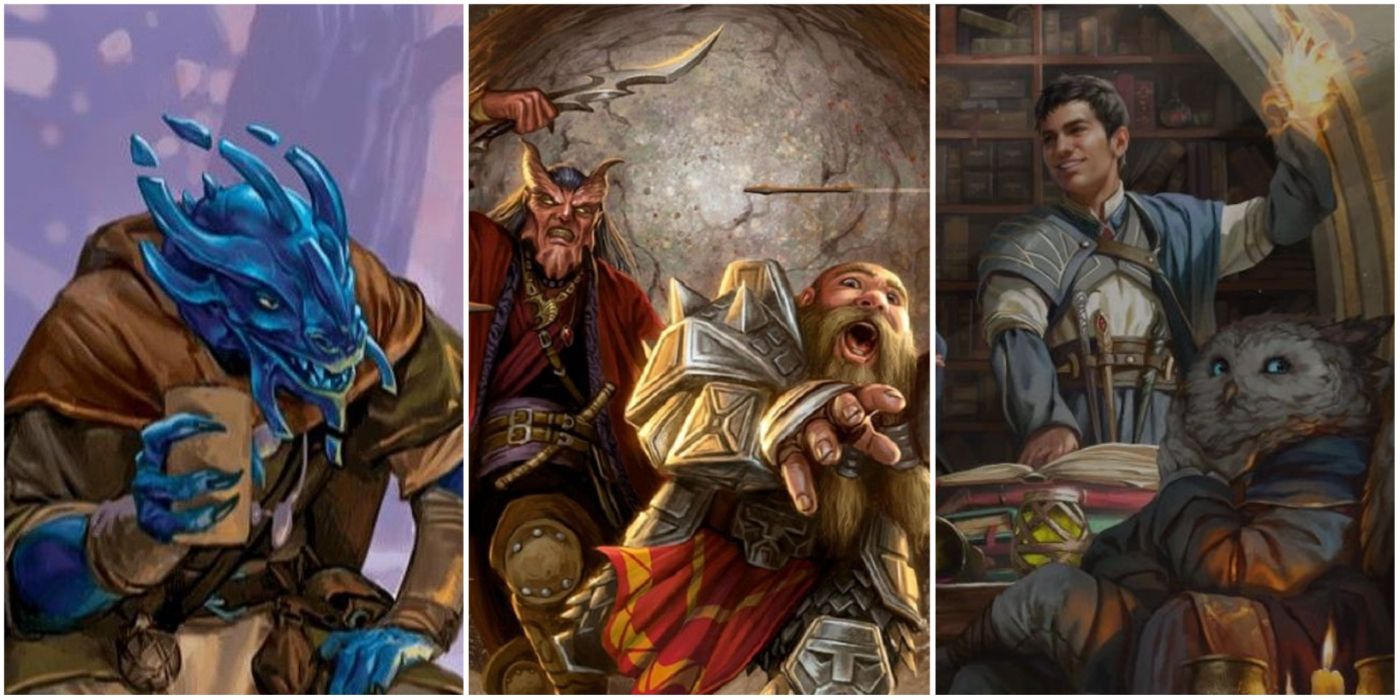
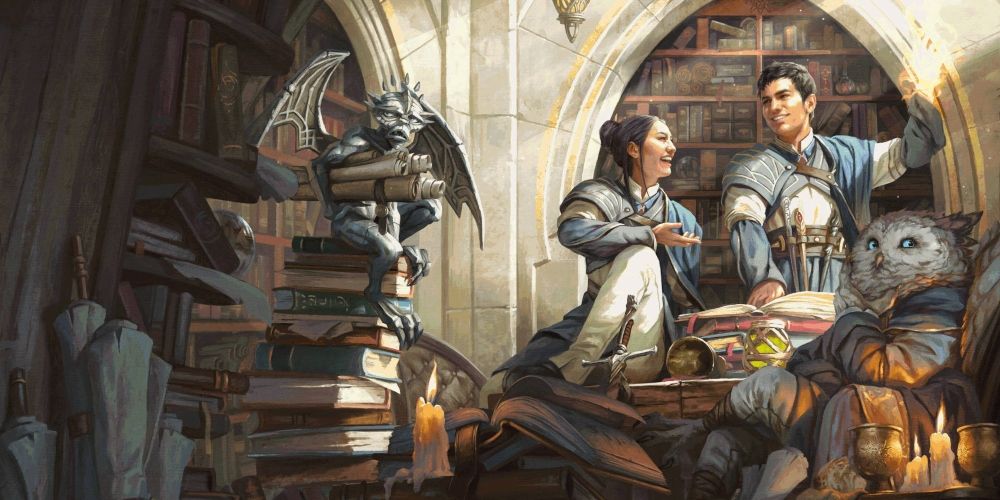
.jpg)
